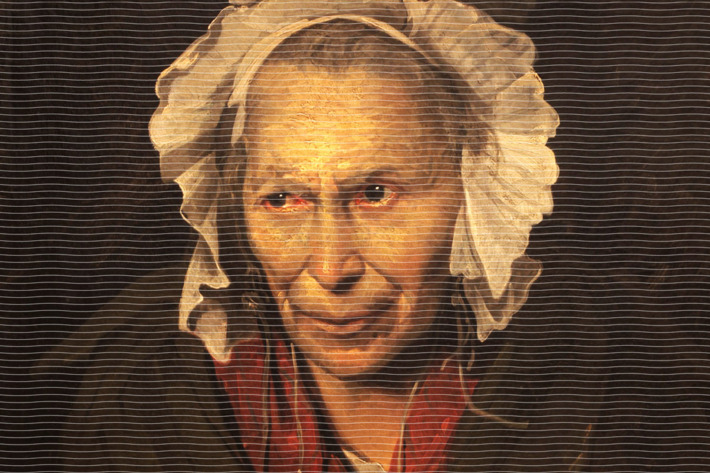
Don’t bother telling me how good I look, because I know what you really mean. For my age, you mean. Face it: To tell a woman over 50 that she “looks good” is condescending, like telling a 4-year-old that she’s “so big” or a dog that he’s “so smart.” It’s a compliment that contains an understanding of the generally inferior appearance of older people, a booby prize awarded to those no longer in the winner’s circle. Everyone knows that women over 50 “look good” only in comparison to other women over 50 — and not, as they did when they were 30, in any objective, traffic-stopping, attention-grabbing, what-would-it-be-like-to-fuck-her kind of way. At 50, you look good if you have not yet been reduced to elastic waistbands or if you carry a stylish handbag. (I understand, as I age, why stylish handbags are the special province of the matronly: A well-made, frivolous, or luxurious accessory becomes a proxy for a more fleshly kind of female assertiveness.) At 50, you know, better than anyone, that you “look good” only compared to the future 70-year-old you. It’s a low bar.
Sure, there are icons of female maturity supposedly blazing the way for the rest of us, fashion ads and indie artists elevating the heroic beauty of aging, in the same way that magazines episodically note the unique lusciousness of plus-size women before reverting to their usual, long-term devotion to thin. Certain singular women supposedly defy culture’s insistence on youth as a precondition for beauty: They strut the red carpet sans lifts and tucks; they wear their wizened faces like badges of pride. And the purveyors of beauty and culture gush over these women in the same self-satisfied way that they once put dark-skinned models on the covers of fashion magazines, to signal their own open-mindedness, before getting back down to the business of fawning over the usual starlets.
It takes crossing the threshold of 50 to understand just how much looks really do matter: Few categories of American humans are more invisible than older women. No matter how “good” people say you look, if you’re over 50, the barista at Starbucks will look through you when the cyclist-hipster behind you orders his coffee, then the hipster himself will reach past you to grab his cup off the counter as if you were not even there. Waiters will flirt less: This will be reflected in the generosity of their pour. At job interviews, or in meetings, you will feel defensive, ill at ease, for you know how age diminishes your prospects. If you have been one of the women privileged to live and thrive within the male gaze (which is to say mostly white and thin and acceptably proportioned), then your sudden exclusion from that club is existentially bracing. And what you can’t get over, day after day, is the relative nature of “looking good,” the incontrovertible fact that no amount of trying — at the spin studio or the hair salon or the plastic surgeon — will propel you back in time. You have, plain and simple, ceased to be a general object of sexual desire. (Yes, there are freaks who fetishize older women, but they are freaks: a category of obsessives lumped with people who want to fuck other non-humans, like horses or shrubs.)
Even more shocking and disorienting than your virtual erasure from the planet is the slow-dawning comprehension of its cause. As much as you hoped and even believed that your achievements could be measured on some scale of merit, you can see in retrospect how the approval of men eased your way in the world and abetted your rise. And now, without your consent and because of chronology, you have been stripped of that power. (An object lesson in privilege, this.) If you’re ambitious, not ready to retreat to the invisible places where invisible people go, then you have only one choice, which is to abandon the pursuit of youth altogether and become something else: a witch, a bitch, a leader of people; a mouthy, righteous, outsider crone. The trick is learning not to please, because only pleasers care how they look.